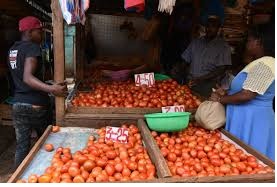Kenya citizens took to social media to decry the government to #lowerfoodprices. Their cries were not in vain as the overall rate of inflation in January 2022 was 5.39 percent down from 5.73 percent recorded in December 2021 with the prices of commodities under food and non-alcoholic beverages increasing by 8.89 percent.
“I’ve definitely felt the pinch of a rise in cost of living. As a parent, there’s 4 terms to pay for school fees. Though that’s not the biggest problem. Nowadays the costs of food electricity, water and fuel have risen and have taken a toll on my pay check that hasn’t risen yet,” Emma N.
Roy Okonji, a Financial Consultant shares some insights; “The cost of living has been on the increase in the recent past with prices of some essential food items doubling. The consumer price index (CPI) which measures changes in prices of a basket of common consumer items has increased to 118 points in January 2022 from 112 points in January 2021.While the increase in prices of consumer goods and services may not be a new thing, the disturbing fact is that it keeps weakening people’s spending power. Unfortunately, salaries and income in general do not grow to match the ever increasing cost of living. The onus is on the consumer to get more creative and do more in trying to reduce the impact of such changes in the cost of living”
For some Kenyans the political class is to blame for the poor state of our economy. “We will continue suffering with high cost of living as long as we remain punishing politicians and not having our own interest at heart. Doing the same things expecting different results. We vote for politicians and leave out leaders. We are to blame,” Lydia Murithii. The disparities between the middle –low class and the upper class have also been seen as a contributing factor according to some Kenyans, “The high end people would only notice price changes once it trends on twitter, but for a common mwananchi that’s a daily struggle. Yet we still pay same VAT,” Miss K.
Zooming in closer to the root cause of the current problem, financial experts also attribute other factors, “the weaker shilling, expensive fertilizer, high VAT 16%, inconsistent rains, urbanisation and land subdivision. Our dislike for natural habitat for growing foods like millet, cassava, yam, Dumas, gwacis, murenda, terere.” The expert further cautions that the fight between Ukraine and Russia may make things worse for us, “Most of our wheat comes from there. If way happens Chapati, cakes and bread will be a luxury,” Karumba Kinyua.
It’s not all gloom and doom, here are some tips our Financial Expert Roy gave to help you cope with the situation,
- Have a spending plan
- Be true to yourself. Make decisions that reflect your financial realities and not to please anyone.
- Avoid unnecessary debt.
- Look for more/extra income.
- Have financial discipline. Learn to say ‘no’ where it is due.
- Save as much as you can
The times might be getting tough but, the Kenyan spirit is resilient and will push through the tough times.








The just shall live by faith